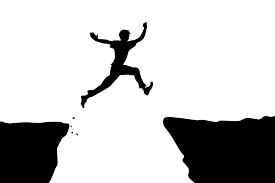Friends
7 Strengths for 7 Stressors of Today
You don't need a cape to be a superhero
Posted October 19, 2017

There are so many of us who are feeling the psychological heaviness of today’s times. If you are feeling out of sorts not due to a physical issue, or find yourself a bit more guarded and needing the safety and security of stepping into the sanctuary of your home more often, you are not alone.
These are disorienting times. I hear my clients talk about feeling very tired; some withdrawing from daily activities, and others avoiding exposure to media as it contributes to feeling down and stressed by world events.
I collected seven themes of stressors that I have heard from patients and friends for the past two months. I follow these with some ideas of how to mobilize your strengths to lead to greater buoyancy in daily life.
Stressor: The world is going down the tubes.
It may feel at times as if the world is going to hell given the horrific events of the past year including fires, earthquakes, hurricanes, and flooding. The political atmosphere here and abroad is not bringing us closer to a sense of stability either.
Strength:
It may sound overly simplistic, but for every story of loss that individuals, groups, states, and countries have faced recently, as well as political mischief and growing intolerance to one another, we see the flip side of people mobilizing resources to care for others that they don’t know and will never meet. This is the best of human nature…altruism, sympathy, and empathy. Whatever you do to contribute, do it. This gives one a sense of being helpful and providing hope for yourself and others. It also gives a sense of taking control of one’s life and supporting the taking back control of some portions of life which is so key after disasters and times of uncertainty and instability.
Stressor: We are destroying our planet.
Human beings indeed have not been good stewards of the planet. There are too many people on the planet consuming ever more resources and all those products you see at Costco, Amazon, or Walmart come from somewhere and will end up somewhere. The manufacturing of goods takes its toll on the earth, and the disposal of the ever-increasing disposable life we lead requires more space for more, and often toxic, waste.
Strength:
We must do all that we can individually and collectively to tread more lightly on the planet. Ask what can you do with small actions to curb your own footprint on the planet? How can you support the care and interest of the earth in children so that the biodiversity we have left, remains?
We have been just a blip on the timeline of this planet’s lifespan but certainly have impacted it tremendously. No species to our current scientific knowledge has lasted forever, and this may be true of homo sapiens. I only hope that if there is a future species on the planet, they will find a way to better live together and with their environment.
Stressor: I feel alone.
We live a very mobile lifestyle whether relocating to a new place for school or for work. Therefore, extended family is often at a distance. Our demanding lives and the disintegration of community such as knowing neighbors or being part of a church or club reduces contacts more. In a study from six years ago (Brashears) the average American had two friends in which to confide. This study was completed again in 2016 and that number dropped to 1.5. We are not becoming less social as a species, but perhaps are finding less emotional supports.
Strength:
As social animals, we do need to be with others and feel part of a group. I often ask my clients who report that they feel alone when was the last time you invited friends over for dinner or extended an invitation to someone for coffee? Many never had or cannot remember. What sort of organizations do you support or are you a part of? Often this is very limited in number or requires us to connect passions and interests to available organizations.
Be inspired and extend yourself to an activity or an invitation and savor some connection.
Stressor: People seem easily angered and upset.
In Boston, it doesn’t take much to get the middle finger or be yelled at whether walking or driving. I believe that the frustrations of life for otherwise reserved New Englanders comes out in the cocoon of their car (and I must say Boston is not a city that was built for the traffic it has). I see in me, family, friends, and clients higher levels of frustration and anxiety. We simply are always going, going, going, and doing, doing, doing. Freud believed that Americans are so industrious because if we stop to relax, we begin to reflect on the meaning and our mortality, and deflect it by jumping into more work.
Strength:
Whatever the case may be, there are some counter-measures. You have heard them before, but let me repeat them: exercise, meditation, downtime with friends and family, and for please take that vacation time you have accrued at work. Too many American’s forgo this time. This, in turn, makes others feel as if they must do the same and begins to change the culture around vacation time.
And here is another valuable exercise I find useful for myself and clients: reflect on your 7 core values (philosophies, or “North Stars”). Over a cup of coffee, ask yourself what is important to you. Then look at how those values are being seen in daily life. For example, if you put “nature” as a value but have not taken a hike in years, it is high time.
One client shared with me his love for music and concerts. I asked him when the last time was that he attended a concert. He had to reflect and after a pause believed that 12 years had gone by since he enjoyed live music. Over the course of the next few months, he booked tickets to go to see some of his favorite bands and brought his son along to enjoy this passion. It was good for him.
Stressor: The political and natural (or man-made) disasters are overwhelming me.
It has been too much devastation. We are reminded of the power of mother nature and what in fact may result from abusing her. And on her own, mother nature can be fierce as it is. Having a string of natural/man-made disasters has indeed been intense. Keep in mind that just because the media ceases to cover the matter, doesn’t mean people on the ground have finished dealing with loss and the trauma of what took place. We are getting more and more distracted and stay with topics less and less.
Strength:
As human beings, we don’t do well when we are so overwhelmed that we begin to feel that despite what we do, it will not change the situation or make a difference. This is what Martin Seligman describes as “learned hopelessness or helplessness.” It is important to try to maintain some sense of control in life and while you may not be able to make the political or natural challenges we face go away, you can mobilize some resources to contribute goods to people in need; vote; support your local charities so that they can help others.
I find it also important to be a wise consumer of media. Too much news, for example, does not inform one any better necessarily, but does expose us to talking heads who are maneuvering for eyeballs and their discourse is often not enlightening.
Stressor: I don't know what to do to be of help.
First, find yourself some sort of space or sanctuary. We need to downshift when we start feeling we can be overwhelmed or anxious about creating change that is far larger in its requirements than me or you. You can be aware and sensitive about an issue without being so aroused you completely shut-down. The grief and loss you feel is part of the human experience of empathizing and shared understanding. Too much withdrawing, however, removes us from the ability to bounce-back and to live in the world as it is. We need to hold on to our humanity.
Strength:
By pursuing a healthy stepping back, we may find the resiliency to move out of disequilibrium to more stability in daily life. While change is easier than loss for people, it is loss that reminds us of what is important in life.
Keep in mind that grief and loss are part of life. What does loss or grief mean to you? How have you managed your own loss or grief in life? What helped, what didn’t? What inner resources did you call upon to support you? What inner resources do you wish that you had to call upon? How can you cultivate them?
Stressor: I just want to withdraw from it all.
Withdrawal is often an immediate response, but it can also be a trap that negates the opportunity to bounce-back. Too much withdrawal from daily life may impact our ability to be human and to share our humanity.
First of all, become aware of that which is making you want to withdraw. Are you feeling overwhelmed by the new that may feel crushing at times? If you recognize this as one of the symptoms, that create some intention of changing that with a concrete action plan.
Strength:
Art, literature, religion, philosophy provide a path to understanding ourselves. We have moved to focusing a lot on superficiality, and outward appearances and ultimately it isn’t sustaining. We all know it, feel, it, but are not sure what to do about it because it takes so much to 1) to be aware, 2) reject, and 3) reconnect to something deeper and greater.
Go back to your core ethics and values, suggested earlier, and then act on them. Let them guide you. How many of those values are expressed in daily life and how often? The greater the alignment between your daily lived life and your values, the greater the sense of well-being one has.




